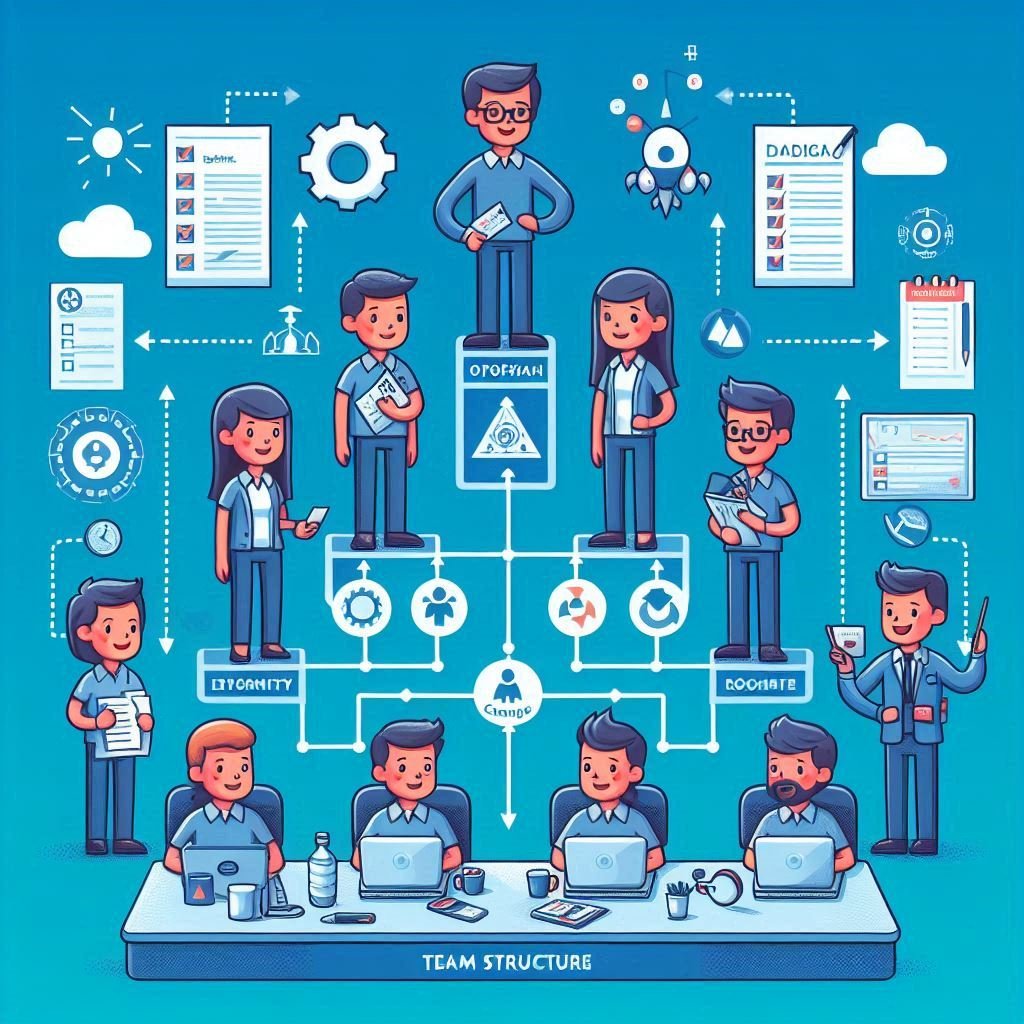Now, PHP development companies are more and more overwhelmed with the costs of offshore PHP software development and the need to contact specialized human resources. Contrary to what many new Outsourcing Providers believe, managing an offshore team brings different challenges than managing Onsite, time zone difference, cultural difference, communication barries and so on. But with the proper strategies you can create a productive and collaborative workplace. While this writing focuses more on best practices for managing offshore PHP development teams, it’s important to note that many of these are applicable to both onshore and offshore teams.
- Set up the Communication Channels clearly.
Choose the Right Tools
Communication is important for remote teams and it must be effective. In terms of communication, use a mix of tools to run real time with Slack, Microsoft Teams or Zoom; and for project management use JIRA or Trello to track and update tasks. Make sure everyone, on your team, is aware of these tools and have access to them.
Regular Check-Ins
They should be meeting regular about the progress, resolving the concerns, and giving feedback. Stand-ups if daily or check ins weekly keep everyone on track and accountable. With that structured communication, you kind of feel connected, and if there’s an issue, you tackle it quick.
- Obviously, we need to define the clear goals and expectations.
Set SMART Goals
Set out specific, measurable, achievable, relevant, and timebound (SMART) goals for the team. Having clear objectives leads everyone to know their role and what success means. The aligned team is a motivated team and an improvement in productivity overall.
Document Requirements
Generate comprehensive project requirements, user and design specifications documentation. It helps developers to get a clear understanding of your vision which minimize the chance of misunderstanding.
- Embrace Agile Methodologies
Implement Agile Practices
Agile methodologies, including Scrum or Kanban, use iterative development, and continuous feedback. With this approach, it is able to change as per requirements whereas it has allowed the team members to collaborate and made the development process more trainable and responsive.
Encourage Iterative Feedback
Organize regular feedback sessions where team members can flaunt what they have done, and seek input. By this iterative means the final product is improved and the practice of collaboration and innovation continues.
- Create a Positive Team Culture
Build Trust and Rapport
Take the time to build a relationship with your offshore team. Being aware of cultural differences and respecting their work can gain your team much more morale. Good team relationships require teams to regularly engage in team building activities in virtual, or meet casually in virtual to check in.
Recognize Achievements
Recognize the successes of your offshore team, be it big and small. Recognition drives motivation to improve work productivity, enjoy working and fosters a positive work ecosystem allowing your team members celebrate their work.
- Put resources into Professional Development
Encourage Continuous Learning
Support your team’s professional growth by encouraging your team to participate in training, workshops and conferences. Besides offering them resources to develop their skills, doing so helps to equip them with the talent they need to bring to the table, alongside revealing your affirmation towards their success.
Share Knowledge
Establish an opportunity for members from the team to share knowledge (facilitate knowledge-sharing sessions for instance) about new technologies, best practices or learning from projects in the past. As a result of this culture of learning, the team’s on top of industry trends, and the atmosphere is collaborative.
- Watch your progress and performance.
Use Metrics and KPIs
Set Key Performance Indicators (KPIs) around how the team is doing and how productive they are. Performance metrics include code quality, bug counts, project milestones and can give clues to how well or how poorly things are going and where they can be improved.
Provide Constructive Feedback
Review often the team’s work and give constructive feedback. Feedback must be specific and actionable, so that team members can understand how to get better at their job.
- Security and Compliance should be a priority for your team.
Implement Security Protocols
Because of the sensitive data dealt with in many PHP applications, we must set in place security protocols from the get go. Your offshore team should be trained in secure coding and be familiar with the compliance codes, for instance they should be familiar with GDPR or HIPPA.
Regular Security Audits
Perform regular security audits and code reviews to discover any security holes. This way you can proactively keep applications integrity, and keep user sensitive data secure.
- Be Flexible and Adaptable
Note Time Zone Differences
Schedule meetings and have deadlines keeping in mind time zone differences. Having some flexibility when it comes to tolerating varying working hours promote good will and keep the off shore team on board balancing in between work and life.
Adapt to Cultural Differences
In understanding cultural nuances we can improve our collaboration and communication. Try learning about your team’s cultural background and being open to changing your management to be inclusive in the work environment.
Conclusion
For offshore PHP development teams to be managed successfully people need to have a strategic approach with a focus on communication, collaboration, and continuous improvement. Having clear goals, positive team culture, and making use of Agile methodologies, can help you to develop an environment where offshore teams can thrive.
And you can be sure that with these best practices your offshore development efforts will result in a successful outcome, high quality product and satisified stakeholders. Effective management of offshore teams proves to be a major determinant of success in the ever evolving domain of web development.
